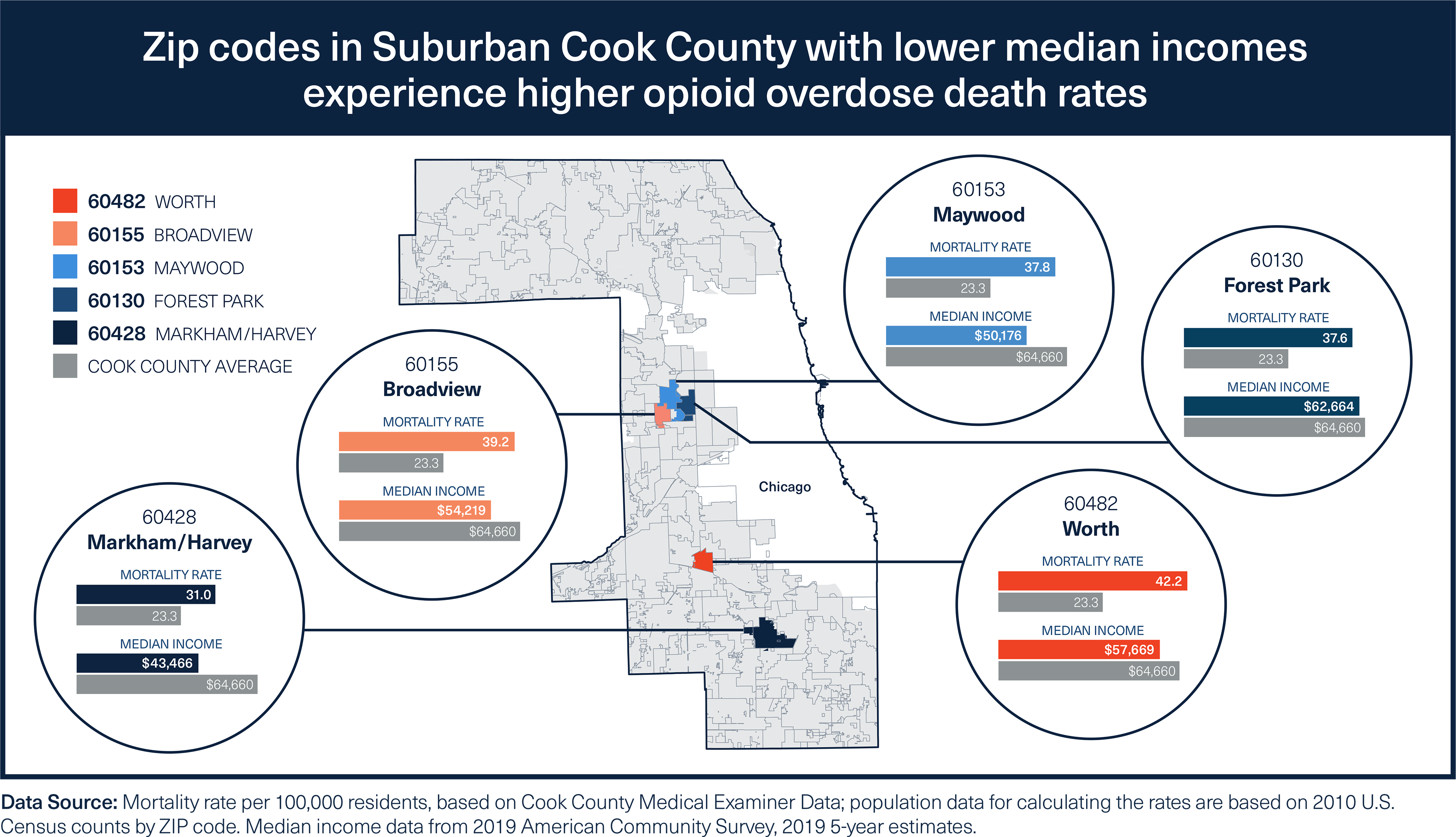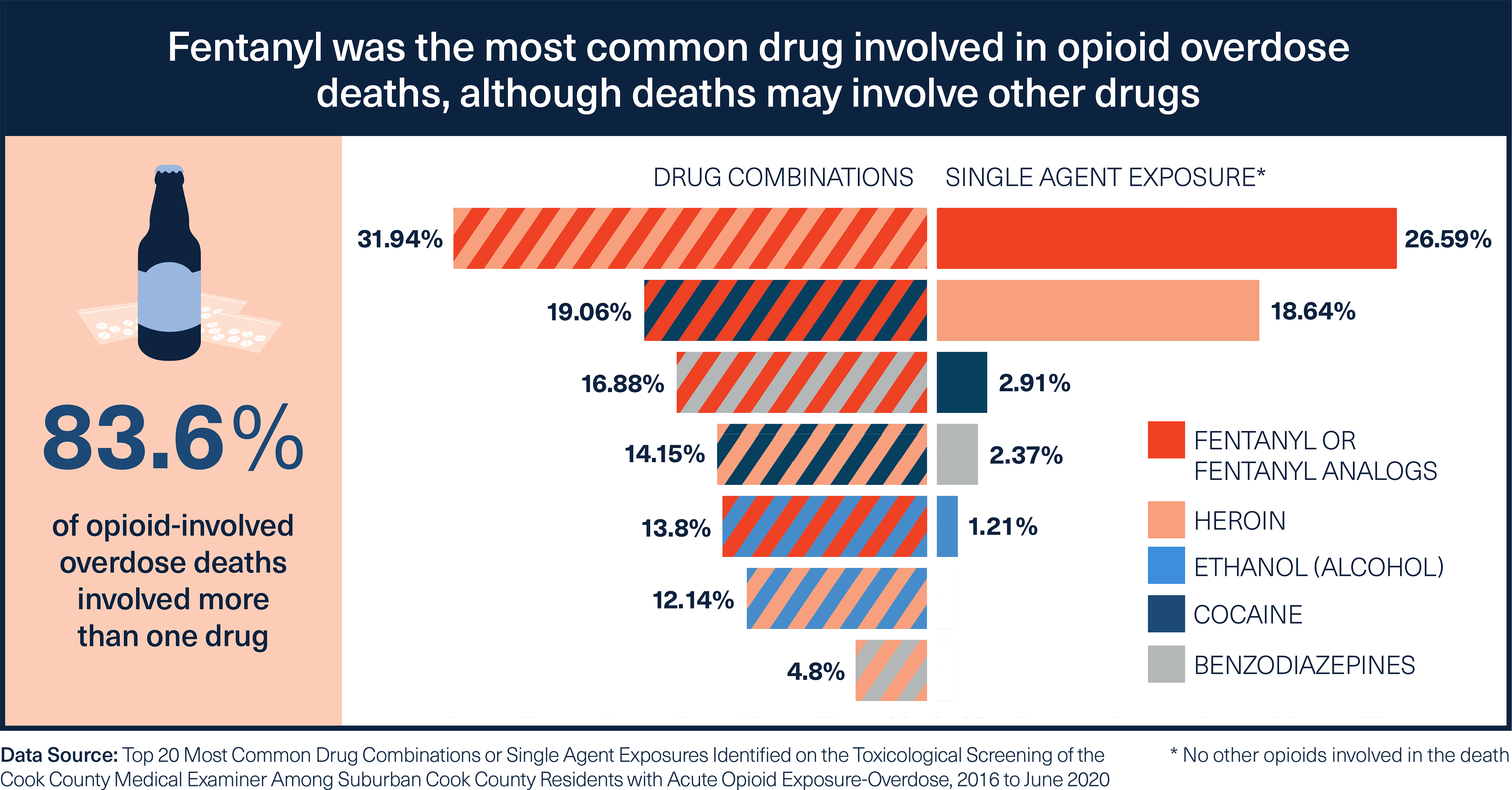The Opioid Epidemic
There were 594 opioid-involved overdose deaths in suburban Cook County in 2022. Almost 90% of these deaths involved fentanyl.


What Are Opioids?
Opioids are a family of drugs related to opium, including heroin, fentanyl, morphine, and codeine. Some opioids are available by prescription, usually for the treatment of pain. Opioids are safe and effective when taken in appropriate doses. However, they may produce a feeling of euphoria. Even when used as prescribed, their use can lead to tolerance, dependence, and potentially overdose and death.
Preventing Opioid-involved Overdose
CCDPH offers training and distribution of naloxone kits and test strips to community-based organizations in suburban Cook County.
Naloxone is a medication designed to rapidly reverse opioid overdose. It is an opioid antagonist—meaning that it can reverse and block the effects to opioid receptors and can reverse and block the effects of opioids. It can quickly restore normal respiration to a person whose breathing has slowed or stopped as a result of overdosing with opioids, including opioid pain medications.
Test strips are another overdose prevention tool. Test strips can quickly and reliably test drugs for the presence of fentanyl, benzodiazepine, and xylazine. Test strips can be used by people who use drugs to test their drugs for substances that can cause opioid overdose or other effects.
Training
Videos
In-Person Training
Request Forms
Report an Overdose Reversal to CCDPH
Additional Information
- Building Healthier Communities Overdose Prevention Grants
- Reports on opioid overdose in suburban Cook County – see sidebar at the right
Questions
- If you have any questions about naloxone training, distribution program, or other overdose prevention resources, please complete this form .
Updated April 7, 2025, 7:47 PM
